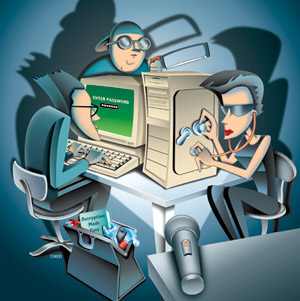 Some years ago, James Boyle made a compelling case in favour of evidence-based policymaking in an article attacking the European database right. Since then, I have become a strong believer in injecting some empirical evidence into copyright debates that are often filled with anecdotes of starving artists, scaremongering tales of decreasing sales, and misleading myths about the creative industries.
Some years ago, James Boyle made a compelling case in favour of evidence-based policymaking in an article attacking the European database right. Since then, I have become a strong believer in injecting some empirical evidence into copyright debates that are often filled with anecdotes of starving artists, scaremongering tales of decreasing sales, and misleading myths about the creative industries.
Back in July the EU Commission decided to support term extension for copyright in sound recordings despite all the evidence to the contrary. In the truest and finest tradition of evidence-free decision making, the Commission has used a tried and tested collection of baseless soundbytes to support their choices. The Commission tells us that:
"The extended term would benefit performers who could continue earning money over an additional period. A 95-year term would bridge the income gap that performers face when they turn 70, just as their early performances recorded in their 20s would lose protection. They will continue to be eligible for broadcast remuneration, remuneration for performances in public places, such as bars and discotheques, and compensation payments for private copying of their performances."
The problem with this argument is that the facts do not back up the assumptions behind it. For example, the
Gowers Review of Intellectual Property came strongly against term extension for sound recordings after commissioning
a report dealing specifically with the economic evidence for and against extension. The report concluded that "
the case for an extension of the copyright term in sound recordings to be weak." More importantly, the report found that increasing term extension would be detrimental for the UK's balance of trade, and it would increase costs to consumers between £240 and £480 million GBP.
Just in case the above report did not constitute enough evidence, the European Commission actually paid
for another report from the influential
IVIR in Amsterdam. The report answers the arguments put forward by content owners one by one: extending terms further than 50 years will not encourage more production; it will not make any difference to investments by the record industries; and it will erode the public domain. The report concludes then that "
[t]he authors of this study are not convinced by the arguments made in favour of a term extension." Strong words indeed.
On top of these reports, a number of UK-based IP academics issued a considered look at the existing evidence (and then wrote
an open letter in The Times), and made another strongly-worded statement against enhancement. Particularly, it was felt that the issue of fees is not one of copyright, but one of contract. Most artists get their remuneration from initial contracts with record industries, and as such, the amount that these artists would gain from extension would be minimal or negligible. This report states that:
"We have seen no evidence that living artists as a whole would benefit decisively from an extension of exclusive rights held by record companies. The benefits will fall to those who need it least: already wealthy performers, and their estates and record companies. In fact, in as much as innovative musicians are users of existing recordings, their artistry will be hindered, not enabled, by extension."
This seems like quite a considerable amount of evidence against extending terms for sound recordings. Yet, the Commission ignored all of it, and went for the extension. Bernt Hugenholtz, the academic behind the EU report, has been
generating buzz in the
blogosphere by pointing out that this is an unacceptable state of affairs. In an
open letter to the Commission, he states that:
"As you are certainly aware, one of the aims of the ‘Better Regulation’ policy that is part of the Lisbon agenda is to increase the transparency of the EU legislative process. By wilfully ignoring scientific analysis and evidence that was made available to the Commission upon its own initiative, the Commission’s recent Intellectual Property package does not live up to this ambition. [...] In doing so the Commission reinforces the suspicion, already widely held by the public at large, that its policies are less the product of a rational decision-making process than of lobbying by stakeholders. This is troublesome not only in the light of the current crisis of faith as regards the European lawmaking institutions, but also - and particularly so - in view of European citizens’ increasingly critical attitudes towards intellectual property."
This is indeed a sad resolution to the consultation process. In the past, copyright policy has been drafted only with content owners in mind. We have become accustomed to undemocratic policymaking that pays no heed whatsoever to evidence, and simply responds to the skewed opinions of a few artists protesting about the loss of revenue and spouting whatever emotional argument will boost their current lobbying effort. I seriously thought that with the Gowers Review ad the Lisbon agenda the status quo would change, and we may start getting at least some more rationality and consideration in new directives. I guess that my optimism was misplaced, and we are back to the same old one-sided debate.
If the Commission intends to continue drafting policy to please content owners, at least they should abandon their facade of balance and save themselves the bother and cost of commissioning research which they will later ignore. It will also save me the bother of writing a long rant.

 del.icio.us
del.icio.us









